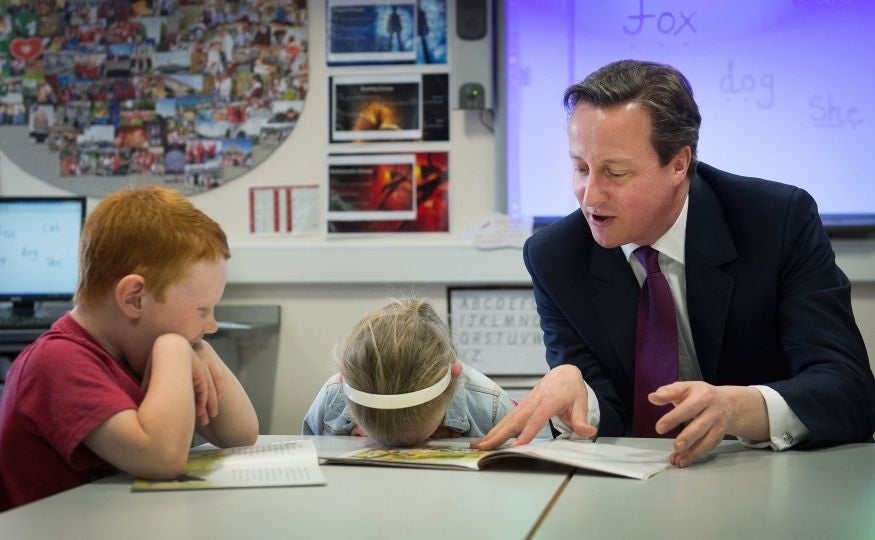Four reasons to feel angry, disenchanted and depressed about our politics
From the catchphrases to the lack of choice, I've almost had enough


I haven’t felt this angry about politics since Mrs Thatcher bestrode the land. With every day that passes in this election campaign, I get increasingly disillusioned with our political masters, and the ways in which they collude to weaken the electorate’s engagement with the democratic process.
It’s not the boiling rage I felt when Mrs Thatcher was destroying the nation’s industrial heartland, and the communities that went with it: it’s more a profound exasperation, a sense that we’re all shouting our heads off and no one is listening.
So here are my four reasons to feel angry:
1. For five years, we have had a coalition government. I have always thought that government by two-party consensus was a good system for a country which, by nature, congregates around the middle ground. I didn’t give any credence to the predictions of disaster when the Tories and the Lib Dems consummated their civil partnership in 2010.
And, whatever else, it’s a grown-up form of politics that has, in the main, worked.
So what happens when we are in election mode? The Tories and the Lib Dems depressingly revert to type. Nick Clegg calls George Osborne “a dangerous man with a dangerous plan”, Danny Alexander says that a senior Tory let slip that his party will look after the bosses, and David Cameron counters that it was an extraordinary claim by “a small party”.
So what’s real? Is politics only about expediency? Were they good colleagues who worked together for everyone’s good, as we were led to believe? Or did they always have utter contempt for each other, as they are now portraying themselves? The voting public knows both things cannot be true, and won’t be taken as fools.
2. Hard-working families. I lost count of the number of times this vacuous phrase was used in last week’s seven-way debate. What does it mean? Is it merely a soundbite designed for the Daily Mail tendency? Does it apply, for instance, to single parents, who may work harder than anyone else? Or is it only a family where both parents, and their children, work? And who’s going to decide whether I work hard, or whether I simply work.
3. One of the most depressing aspects of last week’s debate was that Nigel Farage was the only participant who sounded like a human being, who spoke the authentic, uninhibited language of the voting public.
Could that be because he’s the only party leader who truly believes in what he’s saying? The others come across as people who have been told what to say, and are tutored within an inch of their lives. It’s like their roles are being played by second grade actors.
4. Which way to turn? A friend of mine said that she’s angry because she doesn’t know who to vote for. I feel the same. I’m desperate to exercise my democratic prerogative, but, for the first time in my adult life, I feel disenchanted with the parties I’ve previously supported, for policy or personnel reasons. If Plaid Cymru were standing in my London constituency, I’d be tempted. However, now Labour are pledged to end non-dom tax status with the purpose of creating a fairer society, at last, maybe, there is a reason to believe...
Join our commenting forum
Join thought-provoking conversations, follow other Independent readers and see their replies
Comments
Bookmark popover
Removed from bookmarks